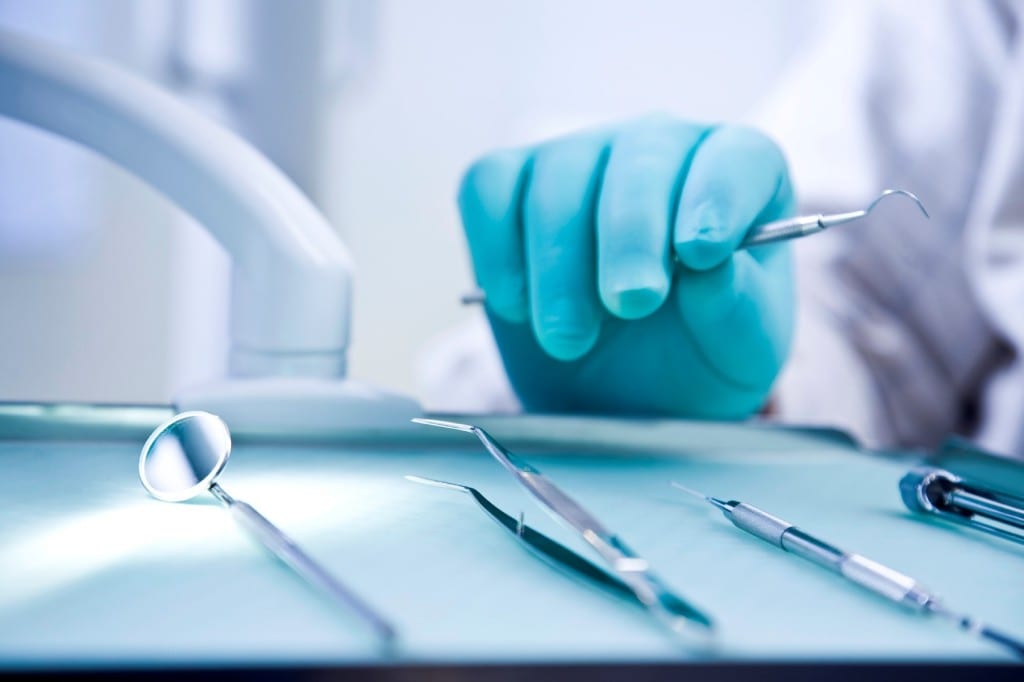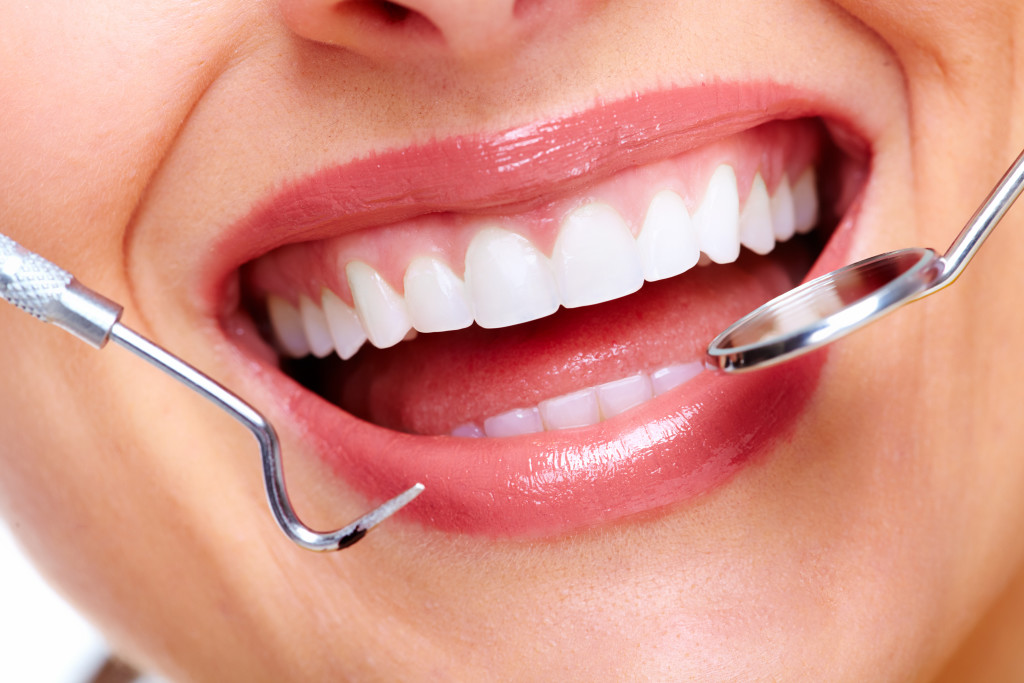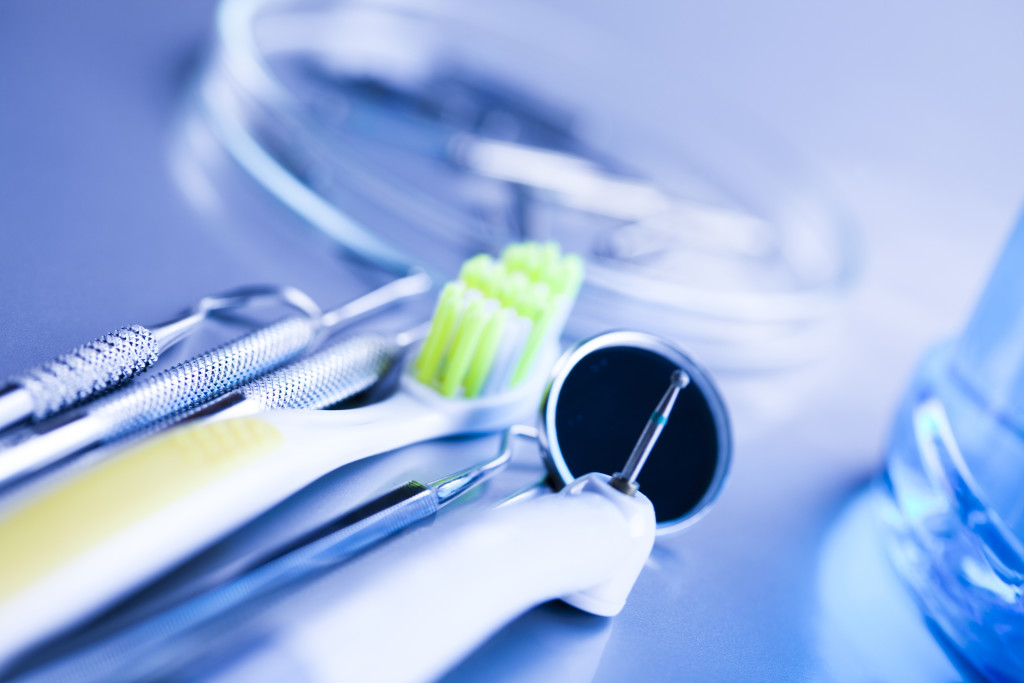 Practically all dentists are unanimous in terms of the beginning of tooth cleaning. Once the first cutter is cut from the gum, you need to start caring for the oral cavity. Some experts even advise starting it a little earlier, helping the gums cleanse of plaque, one of the causes of early caries (congestion of mucus, bacteria, food debris), and accustoming the baby to hygiene rules in advance.
Practically all dentists are unanimous in terms of the beginning of tooth cleaning. Once the first cutter is cut from the gum, you need to start caring for the oral cavity. Some experts even advise starting it a little earlier, helping the gums cleanse of plaque, one of the causes of early caries (congestion of mucus, bacteria, food debris), and accustoming the baby to hygiene rules in advance.
Thus, if the first teeth on the average cut through at the age of 5-8 months, then you can take care of starting at 3-4 months, rubbing the gums and removing the plaque from the tongue with a piece of gauze or special napkins.
Brush your teeth first (and for a long time) parents should. In the process of erupting new teeth, one must be especially cautious: on the one hand, the inflamed gingiva needs care much more actively than before, because the local immunity temporarily decreases, and the gum is open to penetration of microorganisms and bacteria. On the other hand, touching the gums is quite painful.
Importance of caring for baby teeth for health
Often parents neglect the rules of caring for baby teeth, considering them not so important and temporary. But baby teeth are not just a whim of nature.
First, the damaged, carious baby teeth, if they are not cured in time, transmit the disease to the rudiment of a permanent tooth. Thus, a new tooth can erupt already with caries, or do not erupt at all if the infection destroys it.
Secondly, the presence of inflammatory processes in the oral cavity can lead to diseases of the whole organism. We try to wash our hands as often as possible so that the infection and bacteria do not hit with food into the mouth and into the body. A untreated tooth, is a constant source of the infection itself and bacteria that affect the condition of the oral cavity, straight into the bloodstream, esophagus and respiratory tract. Untreated teeth are a threat to the health of the whole organism. They can provoke rhinitis and cause tonsillitis, reduce immunity in general, reducing the body’s defense against URTI, and play an important role in the etiology of kidney disease, joints, and the cardiovascular system. If the affected molar has to be removed, it reduces the quality of food processing in the mouth, affecting the stomach. And the child gets used to chewing on the “full” side of the jaw, forming incorrect habits.
Thirdly, the baby teeth are an important component not only of the chewing process. This is the foundation for the correct formation of sounds, pronunciation, development of the maxillofacial muscles. A child who has lost the incisors as a result of removal or trauma will have difficulty with learning the sounds in the main period of their formation.
Fourth, baby teeth, which, due to lack of timely treatment (and caries in children develop very quickly) will have to be removed, affect the correct formation of the bite and the entire maxillofacial apparatus. Their removal at an early age not only causes a change in the arrangement of permanent teeth and entails the need for correction of occlusion at a more mature age. Specialist osteopaths report that in some cases, an incorrect bite affects the occurrence of pain in the neck and back due to an uneven load on the muscles.
How can parents properly clean their teeth
For the initial stage of cleaning, you can use gauze soaked in clean (can be slightly salted) water or special dental napkins for baby teeth. As soon as the extinction reflex disappears in the infant (this usually occurs in half a year and coincides with the period of feeding), it’s time to start using special brushes.
For the smallest “toothache” from 6 months to a year, it is convenient to use silicone brushes-napalechniki. Despite the softness of silicone bristles, these devices help to efficiently remove food debris and plaque, without damaging the enamel on the newborn teeth.
Brushes of a more familiar form, with a handle and head, must meet several requirements:
- exceptionally soft seta;
- the size of the cleaning head is equal in area to the size of two teeth;
- for safety, such brushes are made with a limiter, so that the baby does not choke or injure the mucous or pharynx, awkwardly jerking during the cleaning process.
The optimal process of dental care involves the use of toothpaste. Children who are not yet familiar with the lure process the mouth with gel toothpastes that do not contain abrasive substances and have a neutral taste or flavor of milk. Toddlers react well to children’s pastes with fruit and berry flavors. It is important to pay attention to xylitol in the composition and the absence of fluoride. Children often swallow toothpaste during cleaning, so the contents of the tube should be as safe as possible for the child’s body.
Often the child begins to resist cleaning his teeth. In order to avoid such a development of the situation, it is necessary to start introducing dental care as early as possible into an immutable rule, an everyday routine and a nightly routine. In this case, children quickly get used to the normal schedule of brushing teeth.
What if the child grows up and avoids hygiene procedures? The classic tip: brush your teeth together, turning it into a game. Dad and baby can brush their teeth together (parents teach and help children brush their teeth, and control the frequency and quality for at least four years.) Their function then comes down to constant monitoring, sometimes to middle school age.)
In the company for cleaning you can include not only the baby and the parent. Let the child clean the “teeth” of the doll, the teddy bear (the old toothbrush), look into the mouth of his mother. Competitive moment can be connected for children who do not want to admit the adult to their teeth. From useful adaptations experts mark an hourglass, plastic, sometimes in the form of an amusing little creature. Just for counting the time you need to properly clean the oral cavity, you can use rhymes, songs, count movements or seconds, simultaneously teaching crumbs to the basics of arithmetic. With young children it is impossible to operate with pure logic, trying to appeal to the consequences, illnesses or financial costs of treatment. But you can use cartoons, tales about sick teeth, finding them on the Internet or writing yourself.
In everything that concerns teeth, the best solution to future problems is their early prevention. And brushing your teeth, started in a timely manner, is its best foundation.
Image credit: Alex Smith






